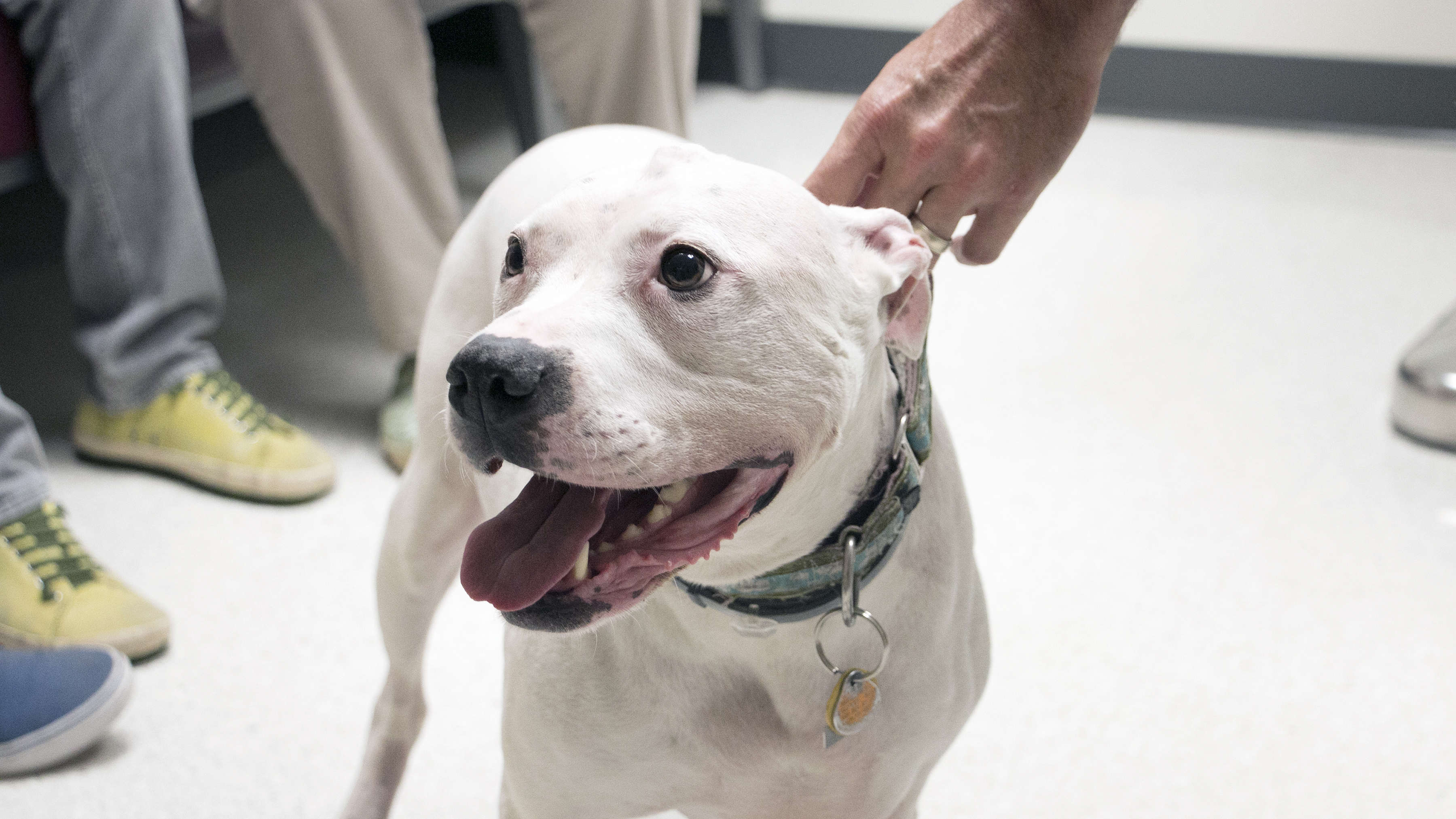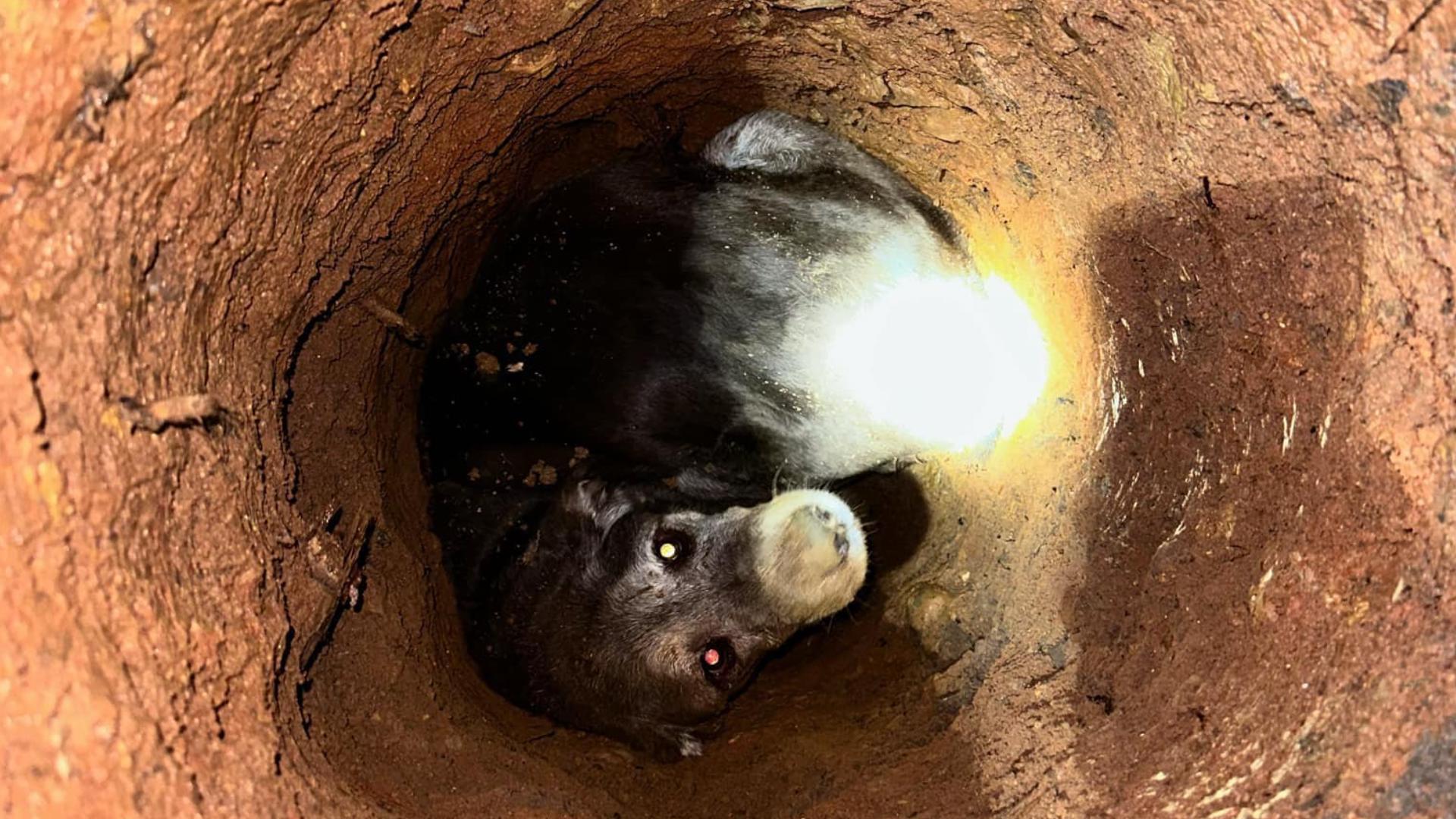"Q" the dog is making a miraculous recovery.
Just months after she was diagnosed with a deadly brain cancer, the young pit bull from Alexandria is responding well to a remarkable new treatment.
Researchers at Virginia Tech say the kind of cancerous tumor that hit Q is similar to glioma brain cancers in humans. So what's working so well for Q may soon be used to treat people.
Virginia Tech's John Rossmeisl is really excited about Q's recovery. Back in March, the usually energetic young pitbull got forgetful and whiny and eventually suffered a seizure. A $3,000 MRI found glioma brain tumor.
The prognosis was terrible.
“If a dog with a glioma receives no specific treatment for that tumor, the average survival is about two and a half months,” said Rossmeisl, a professor of neurology and neurosurgery at the Virginia-Maryland College of Veterinary Medicine at Virginia Tech.
Rossmeisl infused "molecularly- targeted cytotoxin" directly into Q's tumor. The chemotherapy drug binds only to the proteins coating the surface of the cancer cells. It doesn't hurt the healthy cells nearby.
“These drugs are designed to bind to those proteins and then the payload that's present gets imported into the cancer cells,” said Rossmeisl.
So cool! New drug for brain cancer helps dramatically shrink usually fatal tumor in Q the dog. Go Q! #Alexandria @virginia_tech @wusa9 pic.twitter.com/JlFZGuaS4N
— Bruce Leshan (@BruceLeshan) October 16, 2017
Q has responded incredibly well to the new chemo and treatment method. Her tumor has shrunk dramatically and she's feeling much better.
“To six weeks, it shrunk by 50 percent,” said Rossmeisl. “And then from the initial follow up to the four-month follow, it shrunk another 50 percent.”
This is the same kind of cancer that killed Sen. Ted Kennedy and former Vice President Joe Biden's son Beau. It's the same type of glioma that Sen. John McCain is fighting.
Researchers have used similar drugs in humans, but the drug and delivery method that have saved Q are showing much more promising results.
This is just a Phase One trial, designed to determine the right dosage of the new drug. And some dogs have responded much better than others. But there are a number of pets who have seen the same kind of recovery that Q has seen. And that is super promising.
The numbers are really scary. Four percent of dogs will get cancer at some point in their lives. And this deadly kind of glioma is the second most common.
If your dog has glioma, he or she can participate in the trial. You have to pay for the initial MRI to confirm the diagnosis and you have to cover the travel costs to Blacksburg.
But all the treatment and follow-up is free.


